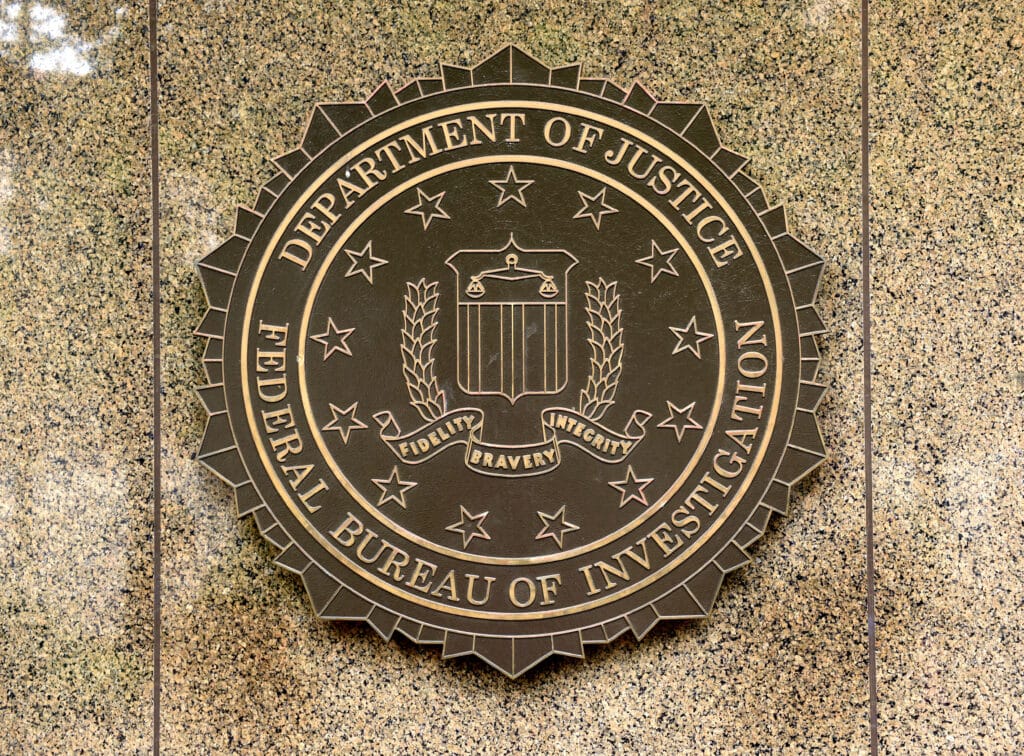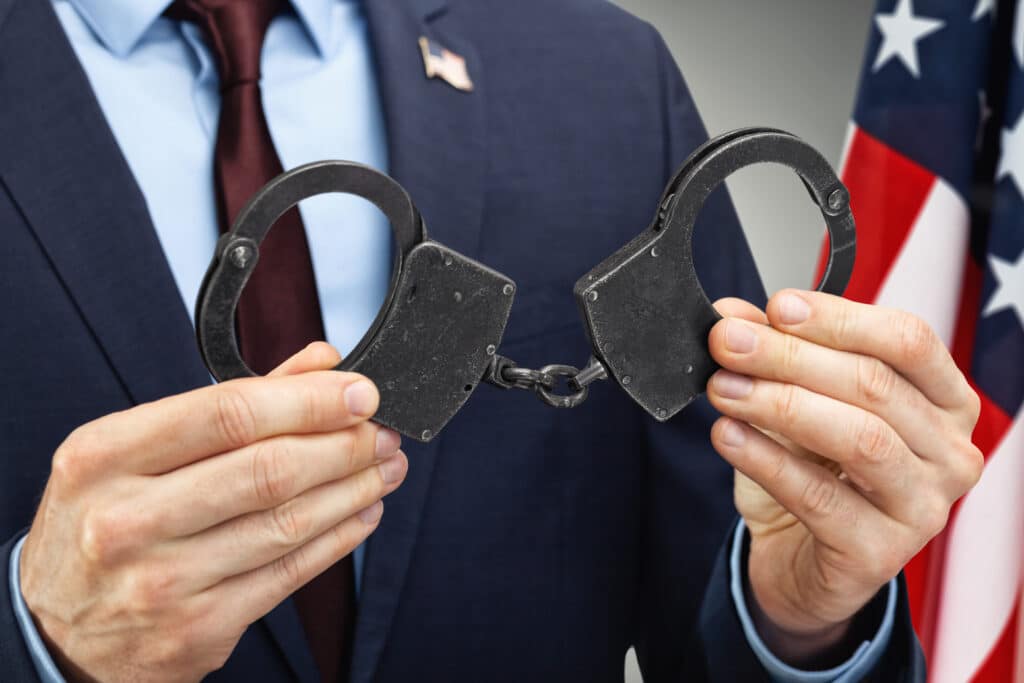Federal Crimes
Being charged with a federal crime is incredibly stressful. This is particularly the case if you are innocent. Having an experienced federal criminal defense lawyer on your side can make all the difference. So it’s essential to get to know these federal criminal charges and learn what they mean for those facing prosecution in federal court. Read our list of federal crimes below to learn more about each federal offense.
This page discusses all types of federal crimes, the most critical information you need to know, and the most common federal offenses.
If you’ve been accused of a federal offense, call the Zoukis Consulting Group immediately. Our team can provide experienced legal assistance and advocacy. Likewise, we can refer you to one of our experienced criminal attorneys for federal crimes. Book a one-hour initial consultation today!
Table of contents

What Is a Federal Crime?
Federal crimes are generally offenses that are outside of state jurisdiction. This could be because the person crossed state lines or country borders during the commission of the crime. Likewise, the federal offenses may have been completed on federal property, committed against a government employee, or the crime may have been perpetrated against one of the major branches of the U.S. government.
Federal crimes tend to come with harsher sentencing than their state counterparts. This means longer periods in federal prison and steeper fees and fines that can go up into the hundreds of thousands.
Keep in mind that crimes prosecuted by the federal government are different than those prosecuted in state courts. The federal court system prosecutes crimes investigated by federal agencies. These crimes include child pornography, various forms of white-collar crime, crimes committed on Indian reservations, and other violations of federal criminal law.
If you are charged with a federal crime, you need to hire a federal criminal firm that specializes in the federal system. Don’t risk your freedom and livelihood by following legal advice from a state criminal defense attorney. If you do, the United States Attorney’s Office will surely identify legal issues and bring the full weight of the federal government down on you.
How Are Federal Offenses Charged?
Federal law enforcement agencies investigate federal offenses in the United States. While many law enforcement agencies pursue federal criminal investigations, the following are the most common:
- Bureau of Alcohol, Tobacco, Firearms, and Explosives (ATF)
- Customs and Border Protection (CBP)
- Department of Homeland Security (DHS)
- Drug Enforcement Administration (DEA)
- Federal Bureau of Investigation (FBI)
- Immigration and Customs Enforcement (ICE)
The typical federal criminal process starts with one of the above federal law enforcement agencies launching a criminal investigation. Alternatively, if state law enforcement agents learn of a federal crime or a crime that could be charged federally, they may refer the matter to federal law enforcement.
Once sufficient evidence is obtained, the matter is referred to the U.S. Attorney’s Office for prosecution. At this point, the U.S. Attorney’s Office typically files either an indictment or an information in the local federal U.S. District Court. A judge is assigned, and the case proceeds.
While most federal criminal cases are resolved through plea bargaining, federal criminal defendants have the right to demand a jury trial. If found guilty, the case proceeds to sentencing.
What’s the Likelihood of Winning a Federal Criminal Case?
The reality of federal prosecution can be scary. Only one percent of federal criminal cases are won by the defendants. This might sound like a terrifyingly low number, but it’s actually oversimplified to the point that you don’t get to see the truth.
Approximately 89% of federal criminal defendants plead guilty before trial, resulting in an inflated conviction percentage. Only eight percent of people charged have their cases dismissed.
This means that only 2% of federal criminal cases go to trial, whether a jury trial or a bench trial. Of these, approximately half are found guilty. While this can be an encouraging statistic, be cautious about proceeding to trial for the wrong reasons.
All too often, we speak with federal prisoners who went to trial because they disagreed with the sentencing guidelines. They felt the sentence was too harsh, so they wanted a trial. This is a significant gamble when there is some proof of guilt because prosecutors often seek the maximum sentence when federal criminal defendants are found guilty after trial.
Speak with your federal criminal defense attorney before making any significant decisions regarding your trial strategy, including whether to go to trial or accept a plea bargain.

List of Federal Crimes
Most crimes can be divided into five general categories. For example, here is a truncated list of federal crime categories:
- White-Collar Crimes
- Financial Crimes
- Drug Offenses
- Sex Crimes
- Violent Crimes
- Immigration Offenses
- Tax Offenses
- Public Corruption
- Offenses Involving Federal Prisons
- Other Federal Offenses
The list of federal crimes below links to more detailed pages discussing each type of crime. Please click on each respective link to learn more about that type of federal offense.
Federal White-Collar Crimes
- Financial Crimes
- Fraud Offenses
- Bankruptcy Fraud
- Bribery
- Conspiracy and RICO Crimes
- Consumer Fraud
- Corporate Fraud
- Counterfeiting
- Cyber Crimes
- Embezzlement
- Extortion
- False Statements
- Forgery
- Identity Theft
- Immigration Fraud
- Insider Trading
- Insurance Fraud
- Investment Fraud
- Mail Fraud
- Misappropriation
- Money Laundering
- Mortgage Fraud
- Pill Mill Crimes
- Real Estate Fraud
- Securities Fraud
- Tax Evasion
- Theft
- Theft of Trade Secrets
- Wire Fraud
Federal Financial Crimes
- Antitrust Offenses
- Bribery
- Bank Fraud
- Bankruptcy Fraud
- Computer Fraud
- Conflict of Interest
- Copyright Violations
- Counterfeiting
- Credit Card Fraud
- Extortionate Extension of Credit
- Fraud Conspiracy
- Gambling Offenses
- Healthcare Fraud
- Identity Theft
- Identity Theft Fraud
- Insider Trading
- Insurance Fraud
- Labor Racketeering
- Mail Fraud
- Mass Marketing Fraud
- Money Laundering
- Mortgage Loan Fraud
- RICO Violations
- Securities Fraud
- Theft, Embezzlement, and Fraud
- Tobacco Law Violations
- Transaction Reporting Violations
- Wire Fraud
Federal Drug Offenses
- Controlled Substances
- Cocaine Charges
- Crack Cocaine
- Drug Conspiracy
- Drug Distribution
- Drug Manufacturing
- Drug Possession
- Drug Sale
- Drug Smuggling
- Drug Trafficking
- Heroin Crimes
- Marijuana Crimes
- Methamphetamine Crimes
- Prescription Drugs
Federal Sex Crimes
- Child Exploitation
- Child Pornography
- Child Prostitution
- Criminal Sexual Abuse
- Failure to Register as a Sex Offender
- Federal Obscenity Violations
- Federal Prostitution Charges
- Solicitation of a Minor for Sexual Activity
Federal Violent Crimes
- Arson
- Assault
- Burglary
- Firearms
- Kidnapping
- Mailing Injurious Articles
- Murder
- Threatening and Harassing Communications
Federal Immigration Crimes
Federal Tax Crimes
Federal Public Corruption Crimes
- Bribery of Government Official
- Campaign Finance Violations
- Election Law Violations
- Offering a Gratuity to a Public Official
Offenses Involving Federal Prisons
Other Federal Offenses
- Accessory After the Fact
- Aiding and Abetting
- Class A Misdemeanors
- Civil Rights Violations
- Conservation and Wildlife Crimes
- Conspiracies, Attempts, and Solicitations
- Contempt Charges
- Failure to Appear
- Misprision of Felony
- Obstruction of Justice
- Perjury Charges
- Product Tampering
- Tampering with Food and Drugs
The above list of federal crimes is serious and may carry significant time in federal prison or financial penalties. For this reason, you are strongly advised to speak with a federal crime lawyer at the first hint of law enforcement involvement.
If you believe you are under investigation for a federal crime, speak with a defense attorney. And if federal law enforcement attempts to question you, you should strongly consider invoking your Fifth Amendment right to remain silent and Sixth Amendment right to counsel.

What to Do if Charged With a Federal Crime?
If you’re charged with a federal crime, the most important thing you can do is avoid talking to the police without your lawyer present. Instead, only speak with your defense team.
This might feel silly to anyone not accustomed to federal court cases. Still, it’s important to remember that your only true advocate is your federal offense attorney. Federal law enforcement does not want to help you. They are simply searching for evidence to support a conviction.
Likewise, while a co-defendant may be a close friend, a surprising number of federal criminal defendants cooperate with the government to secure a reduced sentence. Once you know about a federal law enforcement investigation, you need to remain silent and only speak to your lawyer about the offense conduct.
Listen to your lawyer, don’t allow your property to be searched without a warrant, and get to know your rights so that you’ll be ready to take this case head-on.
Call the Zoukis Consulting Group Now
Contact the Zoukis Consulting Group if you have been interviewed by federal law enforcement or charged with a federal criminal offense. Our team can help you understand the process, find competent legal representation, and guide you through the process.
Our objective is simple: We help our clients serve the least amount of time in the best federal prisons with the earliest opportunities for release. Book a one-hour initial consultation to discuss your criminal defense needs.
Published Feb 15, 2022 by Christopher Zoukis, JD, MBA | Last Updated by Christopher Zoukis, JD, MBA on Jun 8, 2023 at 11:57 pm


